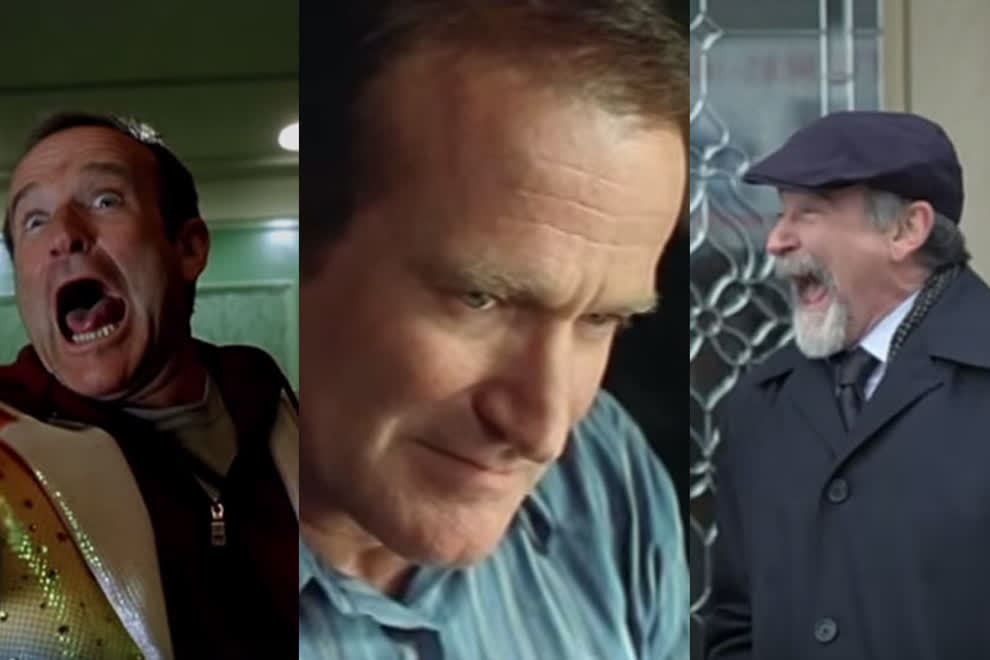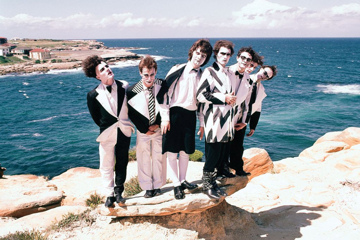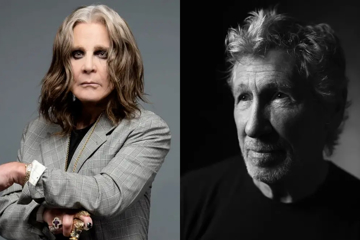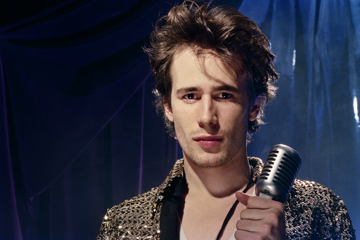A Year Without Laughter: Remembering Robin Williams' Most Underrated Roles
It's been 365 days since the comedy great took his own life, and the loss still stings

It's difficult to believe, but Robin Williams has been gone for a full year now.
It was 11 August 2014 when the legendary comedian took his own life, the combined weight of severe depression alongside the onset of Parkinson's disease and Lewy body dementia proving too much at last for an unparalleled master of laughter, who had struggled so quietly for so long that, in the immediate wake of his death, some people began misattributing an all-too-painfully-appropriate joke most famously told in Alan Moore's seminal 1985 graphic novel Watchmen to Williams himself instead:
Heard joke once: Man goes to doctor. Says he's depressed. Says life seems harsh and cruel. Says he feels all alone in a threatening world where what lies ahead is vague and uncertain. Doctor says, "Treatment is simple. Great clown Pagliacci is in town tonight. Go and see him. That should pick you up." Man bursts into tears. Says, "But doctor...I am Pagliacci."
You can see why people would believe this had come from Williams' own mouth. The man was indeed Pagliacci-esque, and — if we're being honest — had perhaps not been enjoying A-list career heights for quite some time before his suicide. But Williams didn't just spend his post-prime years clowning about for inoffensive family films like Night At The Museum; in fact, in his four-decade career, the man starred in more than 100 movies, not to mention several appearances on TV, and while some of his work — Bicentennial Man, Flubber — may have been regrettable but, for the most part, Williams spent his career pulling laughs (and sometimes tears) from the least likely of places — and some of those efforts still don't get the love they deserve.
Don't miss a beat with our FREE daily newsletter
If you want to remember Robin Williams this week, we suggest you do it with one of these underrated performances instead...
death to smoochy (2002)
The concept alone for 2002 flop Death To Smoochy should have been enough to get people in the door: ageing, corrupt kids' show host Rainbow Randolph (Williams) is replaced by clean new kid on the block, Sheldon Mopes, aka Smoochy the Rhino (Edward Norton). Unemployed and down on his luck, Randolph plans to ruin Mopes' reputation through a series of increasingly insane schemes as he desperately cloys to get his job back.
Sadly, the ambition outpaced the reach. To be fair, yes, Death To Smoochy got pretty bad reviews upon its release, but that's not really Robin Williams' fault - despite the Razzie nomination for worst actor that followed the movie. In fact, Williams' onscreen spiralling as Randolph becomes more and more deranged and distressed about his failure to displace the rebel rhino from his throne truly is one of the standout memories of the whole thing.
Indeed, Death To Smoochy marked the beginning of a brief period of "darker" comedy and drama for Robin Williams, coming off his ultra-colourful period in the 1990s, when he was lighting up the cinema in films like Mrs Doubtfire, Jumanji and The Birdcage, as the actor turned his efforts towards being taken more seriously as an actor. Death To Smoochy didn't do the job completely, but it definitely highlighted Williams' diversity and stands out as an oft-forgotten performance despite its unique qualities in his canon.
insomnia (2002)
Along with Death To Smoochy and the well-known One Hour Photo, Insomnia forms yet another part of Robin Williams' block of films — all released in 2002 — that seemed to be a deliberate attempt to outrun the jester of his past. Unlike One Hour Photo, though, Insomnia never really seemed to gain any considerable notoriety for demonstrating Williams' thriller/dramatic chops, despite their decent flexing in this piece from a pre-Batman Begins Christopher Nolan.
This is not to say that Insomnia itself is not a widely appreciated flick; starring Al Pacino and Hilary Swank in main roles alongside Williams' nefarious crime writer Walter Finch, the film follows a winding tale of small-town-Alaskan death, deception and subterfuge as a detective (Pacino) following the murder of a teenager desperately tries to hide the fact he accidentally killed his partner on the job, all while an investigative taskforce bears down around him.
Amid all this, we have Williams: quiet, creepy, bookish, defiant, both a target and taunter of Pacino's put-upon policeman, and a fine addition to a filmographic history that, until this point and with only a handful of exceptions, had been so steadfastly defined by an adherence to at least some kind of comic undertone.
ferngully: the last rainforest (1992)
The same year that Williams stole the hearts of children everywhere as the inimitable Genie in Disney's Aladdin — and more than a decade before James Cameron would throw money at this movie's general story until it turned into Avatar — the comedian was lending his voice to B-list environmental film FernGully: The Last Rainforest, which holds significance Down Under for being a part-Australian production, and for featuring not only Williams but Tim Curry, Christian Slater, and Samantha Mathis, who you might also remember as Princess Daisy in Super Mario Bros, if you're into terrible '90s movies.
If you don't remember this movie (and, to be honest, most of what remains mentally is that Land Of A Thousand Dances sequence and Williams' standout character, Batty Koda), it's essentially a tale about why pollution is bad, as told from the perspective of faeries and talking animals, plus a couple of sentient trees voiced by Cheech and Chong. Also, a post-Funky Cold Medina, pre-Ace Ventura Tone Loc was there, because Tone Loc was inexplicably very employable in the early-to-mid-1990s.
And, of course, let's not forget that the performance also yielded this wonderful musical artefect alongside its educational value, from a time when kids' shows and movies really put a tonne of their eggs in the "white, middle-aged rap" marketing-strategy basket as it seemed to really pick up steam 20-odd years ago.
the angriest man in brooklyn (2014)
The Angriest Man In Brooklyn is not a good film by any realistic stretch, but it is certainly way too overlooked nonetheless considering that — with a release date of 23 May last year — it's the last film in which Robin Williams will ever appear.
And, on the surface of it, it had the right ingredients to not be so bad: an ensemble that also featured Mila Kunis and Peter Dinklage, directorial work from Field Of Dreams helmsman Phil Alden Robinson, and a premise with potential to spare — man discovers he has a terminal illness and is erroneously told that he has 90 minutes to live, before deciding to spend that time racing about the place trying to right all his wrongs before he shuffles off the mortal coil while his doctor attempts to get him to a hospital — but nonetheless, its limited theatrical release and swift relegation to the halls of forgotten DVDs speak volumes as to its overall quality.
Yet, despite its daft tendency to fall towards the wacky as opposed to thoughtful, there's something in Williams' performance in this movie that makes the process of sitting through it feel at least semi-worthwhile; yes, it contains the explosive, energetic behaviour that he'd made his hallmark over years of stand-up comedy and improv work, but it also carries an eerie weight and unintended relevance in its few moments of vulnerability. If it was hard to watch before Williams' death, it's even harder to watch now, for completely different reasons.
louie - 'barney/never' (2012)
We all know that comedians can wield a considerable amount of power with their jokes and material, which makes it all the more affecting to discover that, incredibly often, they're just as — if not more so — devastating when they turn off the tap.
And, Jesus, few comedians today manage to do the anti-joke as well as Louis CK, who has made a seemingly effortless habit in his FX show Louie of punching his audience in the stomach while they're still reeling from laughter as much as being able to hang an entire episode on everyday mundanity — and Barney/Never, a 2012 episode in which Robin Williams guest-starred as a version of himself, meeting Louie at a mutual acquaintance's funeral and having a cup of coffee in a diner afterwards, is absolutely gold-standard stuff.
It's so natural, and disarming, and downright human to see these two giants of comedy stripped back to their most minimal selves, riffing on the subject of death in a way that evokes both laughter and unbearable sadness as only Louie has mastered over the course of its run — yet, here, the expected power dynamic is reversed; before this episode, it would have been easy to look at Louis CK and say, 'that's the face of modern comedy — dark, bleak, effortless, scathing', a black-T-shirt-wearing usurper of the ebullient school of hand-waving over-the-topness that Williams spent so much of his career championing.
Yet, in this scene, it's not Louis who is most evocative, but Williams; we get a real sense of the man behind the masks, a sense that he very well could have taken the route less manic and just gotten up on stages with a ponytail and cigarette and mused about how much he hated riding the subway, and been absolutely brilliant at it; but, then, when you spend most of your downtime surrounded by darkness, no one should begrudge you taking every chance you get to bask in what little light you can.







